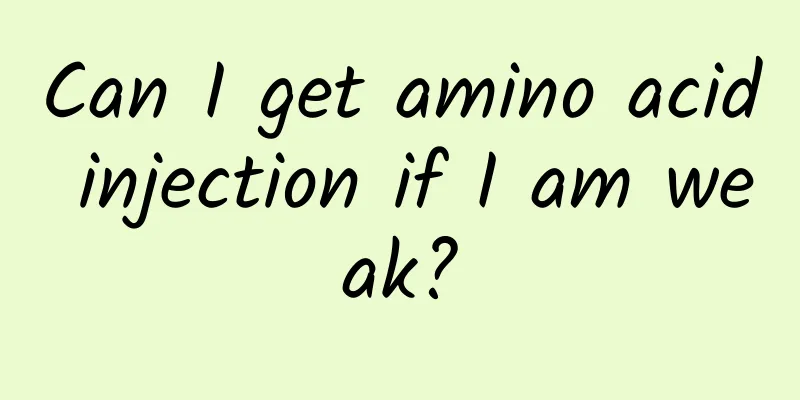What causes repeated hiccups?

|
Hiccups can be said to be a helpless and embarrassing thing in life. Although it is not a physical disease, it makes people very uncomfortable. When encountering hiccups, many people have no way to deal with it and can only wait for it to disappear by itself. When it comes to hiccups, many people have experienced it but often don’t know why they hiccup. Today I will introduce to you the origins of hiccups one by one, and what good methods do we have when we encounter hiccups? 1. Why do people hiccup? Hiccups are caused by stimulation of the nerves in the cervical spine, thoracic diaphragm, or gastrointestinal tract, which causes diaphragmatic contraction. Temporary hiccups may occur due to cold stimulation, eating too much, eating too fast, or eating too much dry and hard food. Most hiccups will stop automatically after a few minutes. This is normal and there is no need to be nervous. If you keep hiccuping, you can use the following methods to effectively stop the hiccups. If you keep hiccuping, you can drink water and bend over to solve it Prepare a cup of warm water and swallow it slowly in several times, while doing 10 to 15 90-degree bends. Because the stomach is close to the diaphragm, the diaphragm can be warmed by bending over, and the internal organs will also massage the diaphragm, thereby relieving diaphragm spasms and achieving the purpose of stopping hiccups. If you keep hiccuping, you can use the tongue stretching method If you feel you can't stand hiccups for too long, wrap your tongue with a piece of clean gauze, pinch your tongue with your fingers and stretch it outwards. You will then feel gas rising in your abdomen and the hiccups will naturally disappear. Acupressure can be used to treat persistent hiccups Pinch and press the tip of the middle finger: Use your left and right fingers respectively to pinch the top of the middle finger hard. After about 1 to 2 minutes, the hiccups will be stopped. Remember to use appropriate force and maintain the pain for about 1-2 minutes. Pinch and press the Neiguan point: The Neiguan point is about three horizontal fingers above the wrist. There will be obvious soreness when pressing the point. Press it for 1-2 minutes on each side as above. Breath holding technique can be used to treat continuous hiccups Just hold your breath for 30 to 45 seconds, or prepare a clean chopstick and put it in your mouth, gently stimulate the upper 1/3 of your palate, and the hiccups will stop immediately. Because using chopsticks can stimulate the upper palate and induce the pharyngeal reflex, causing people to hold their breath suddenly, increasing the carbon dioxide concentration in the airway and thus interfering with the hiccuping nerve reflex. However, this method is not suitable for people with poor cardiopulmonary function. If you keep hiccuping, you can use the paper bag breathing method Cover your mouth and nose with a plastic bag, take 3 to 5 deep breaths, and repeatedly inhale the exhaled carbon dioxide to increase the concentration of carbon dioxide in the blood, so as to regulate and suppress hiccups. Can swallow sugar to treat constant hiccups Take a spoonful of white sugar and swallow it dry (without water), and the hiccups will stop after a few minutes. The sugar in the mouth can change the original nerve beats and prevent the intermittent contraction of the diaphragm muscles. |
<<: Causes of recurrent oral ulcers
>>: What to do if the baby's fever goes away and then comes back again
Recommend
What is the cause of pupil dilation?
Many times some people's pupils are dilated w...
How to get rid of oily hair
With the continuous improvement of modernization,...
What to do if your penis is strained
People may suffer physical injuries due to some f...
How to shorten your period when it has already come?
When you have your period, if it suddenly becomes...
Why are nipples black?
When a woman is just born, her nipples are in a c...
What causes nosebleeds in hot weather?
Nosebleeds happen frequently, especially among ch...
Tips for reducing dark spots
The appearance of pigmentation makes many women d...
Can I use moxibustion to treat ovulation bleeding?
Moxibustion, a traditional Chinese medicine treat...
Can I get pregnant with a small uterus?
The sizes of organs in different women's bodi...
Why do I feel tired and sleepy?
From a physiological point of view, if you often ...
What to add to wolfberry to soak in water to strengthen yang and nourish kidney
What should be added to wolfberry to soak in wate...
What causes stomach hunger pain?
With the increasing pressure of social life and w...
The child has a hard lump on his leg
A hard lump on a child's leg may be due to sk...
What medicine is good for epidural inflammation?
The gastric apex is a very important part and play...
Symptoms and treatment of myocarditis
Myocarditis is extremely painful, people may feel...









